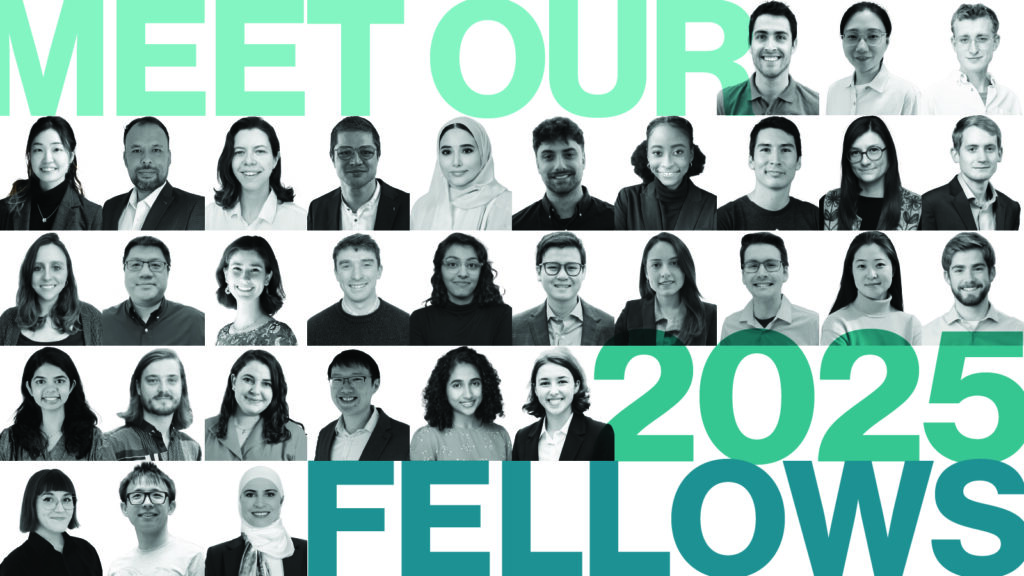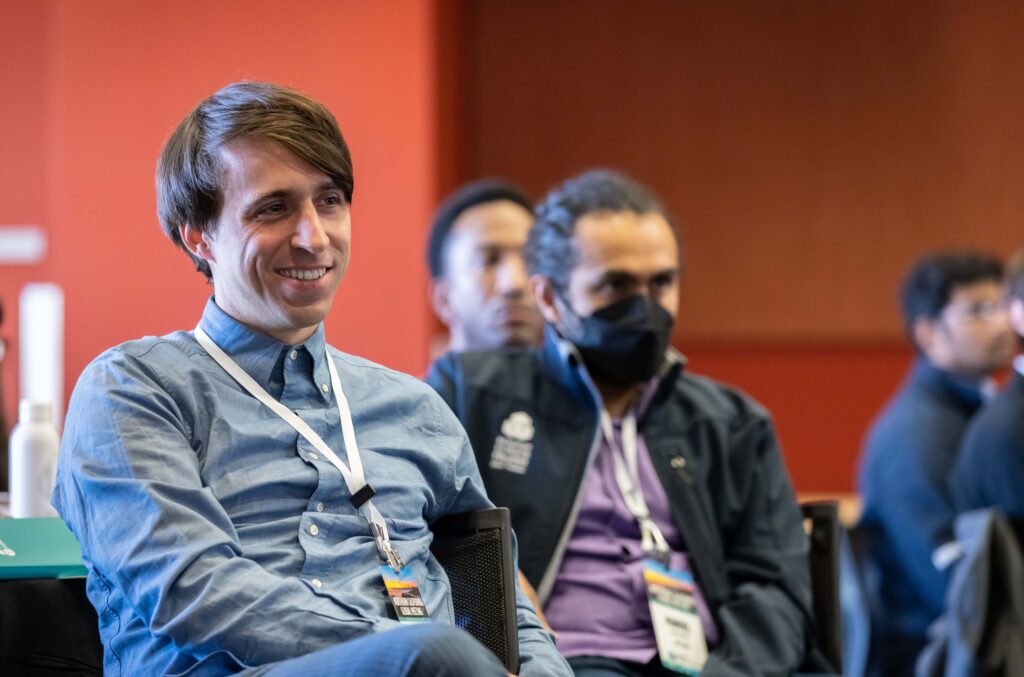28 new members grow the global Fellowship to a total of 84 Fellows working at the intersection of disciplines to advance science for the public benefit
Schmidt Futures and the Rhodes Trust affirm commitment to continue the program
Eric and Wendy Schmidt today announced the fourth cohort of Schmidt Science Fellows, a group of 28 early-career scientists committed to harnessing interdisciplinary science to make a positive difference in the world.
Over the past year, the international scientific community’s response to COVID-19 has further demonstrated the crucial role of interdisciplinary science in tackling global challenges. An initiative of Schmidt Futures, delivered in partnership with the Rhodes Trust, the Schmidt Science Fellows program was launched in 2017 precisely with this mission to accelerate discovery through interdisciplinary science.
The 2021 Fellows will each undertake an interdisciplinary pivot in their research, focusing on areas such as preventing future pandemics, creating sustainable energy systems, improving water and food security, developing more personalized and equitable healthcare, and understanding and mitigating the climate crisis.
The 2021 cohort announced today is:
● Gergana Daskalova, University of Edinburgh
● Austin Evans, Northwestern University
● Vivian Feig, Stanford University
● Álvaro Fernández Galiana, Massachusetts Institute of Technology
● Shashank Gandhi, California Institute of Technology
● Trevor GrandPre, University of California, Berkeley
● Max Hülsey, National University of Singapore
● Fatima Hussain, Massachusetts Institute of Technology
● Geraldine Jowett, King’s College London
● Sema Karakurt-Fischer, Technical University of Munich
● Anastasia Korolj, University of Toronto
● Suhas Mahesh, University of Oxford
● Sebastian Musslick, Princeton University
● Ofer Neufeld, Technion Israel Institute of Technology
● Mengyao Niu, University of Wisconsin-Madison
● Sirma Orguc, Massachusetts Institute of Technology
● Jacob Paiano, University of Pennsylvania
● Elisabetta Perotti, Uppsala University
● Rebecca Pinals, University of California, Berkeley
● Manuel Razo-Mejia, California Institute of Technology
● Kurt Ristroph, Princeton University
● Sandra Schachat, Stanford University
● Sapna Sinha, University of Oxford
● Jenelle Wallace, Harvard University
● Jamison Watson, University of Illinois at Urbana-Champaign
● Bryan Wilder, Harvard University
● Ji Mun Yoo, Seoul National University
● Kevin Zhao, Harvard University
More details on each 2021 Fellow, including their research interests and interdisciplinary ambitions, can be found here.
Schmidt Futures and the Rhodes Trust today also affirmed their commitment to continue the Schmidt Science Fellows program, with a goal of continuing for at least five years and potentially much longer. The funding is part of a broader $1 billion philanthropic commitment made by Eric and Wendy Schmidt to find and develop global talent.
Eric Schmidt, co-founder of Schmidt Futures and former CEO of Google, said: “At Schmidt Futures, we believe the key to a better future is investing in talented people, connecting them in a network, and giving them the resources to do more together than they could ever do alone. Schmidt Science Fellows was our first initiative, and the work of the Fellows speaks for itself—especially as we saw so many of our current Fellows pivot their research to tackle the coronavirus pandemic. I’m eager to witness how these Fellows continue to push the conventional boundaries of science in the years ahead.”
Wendy Schmidt, co-founder of Schmidt Futures and President of The Schmidt Family Foundation, added: “The Schmidt Science Fellows are proving that bringing together brilliant people across disciplines is the only way to tackle the problems our world faces this century. We could not be prouder of the Fellows, who have already improved cancer diagnostics, advanced the way new drug therapies are delivered and brought life-saving, Covid-fighting technologies to people around the globe. We can’t wait to see what the 2021 cohort will accomplish.”
Dr. Megan Kenna, Executive Director of Schmidt Science Fellows, said: “We need a new way of conducting science if we are going to tackle the world’s biggest problems, which means we need scientists who can work across disciplines. Our 2021 Fellows will be at the forefront of this transformation, and we are grateful to everyone who works with us to identify and select the very best emerging leaders to join our community. My thanks go to the nominating institutions, reviewers, and selectors who are all crucial to this process.”
The 2021 cohort was nominated by 19 of the world’s leading science and engineering institutions in eight countries. The 28 Fellows represent 13 nationalities and research fields that include chemistry, computer science, physics, neuroscience, and ecology. The Fellows were selected through a rigorous process that included preliminary nomination by their PhD awarding institution, a paper-based academic review with panels of experts in their home disciplines, and final interviews with panels, including senior representatives from across many scientific disciplines and different business sectors.
In addition to the Schmidt Science Fellows, Schmidt Futures and the Rhodes Trust recently launched a second initiative in 2020, which is the anchor program of the $1 billion philanthropic commitment to talent, called Rise. Rise aims to find the world’s most extraordinary young people who need opportunity and to support them for life as they use their talents to serve others.
About the Schmidt Science Fellows Program
An initiative of Schmidt Futures, delivered in partnership with the Rhodes Trust, the Schmidt Science Fellows program brings together the brightest minds who have completed a PhD in the natural sciences, mathematics, engineering, or computing, and places them in a postdoctoral Fellowship in a field different from their existing expertise. Fellows are supported for at least one and up to two years with a USD $100,000 per year stipend. The funding provides both training for the Fellows and the research they undertake.
The 56 Fellows in the first three cohorts have been hosted by 54 groups at 36 global institutions. With the fourth cohort of Fellows, that brings total participants in the Fellowship to 84.
Each cohort participates in the program’s Global Meeting Series, which provides tailored training, introductions to new concepts, visits to leading interdisciplinary scientific centers, and opportunities to engage with renowned thought-leaders from science, business, policy, and society. Once selected, every Fellow becomes a member of a lifelong community of interdisciplinary leaders who can affect real and innovative change in the world.



